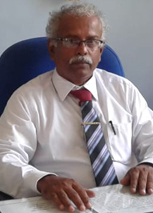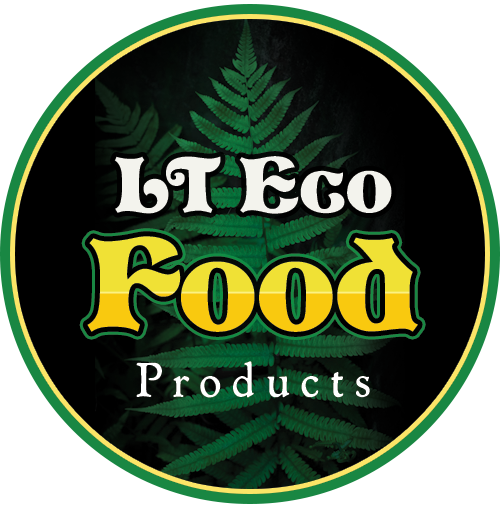A Project by Sri Lanka Ecotourism Foundation (SLEF) to support rural women through Training on Agro Tourism, Community Tourism , Management of Farm and Ecolodges

Nature of the Project:
A Training and Awareness Programme initiated by SLEF targeting the rural women in Sri Lanka in improvement of their life-styles and alleviating of poverty in the society in general
Objectives of the project:
To strengthen of the institutional capacity of rural women enabling them to embark in ecotourism enterprises in their locality
Focus:
Gender empowerment through training and opening of Income Generating Activities (IGA) for the rural women
Number of training programmes planned during Year 2015; 10.
Number of participants to be enrolled; 10 in each location
Locations identified:
Piliyandala, Horana, Kalutara, Bandaragma, Anuradhapura, Polonnaruwa, Nuwara Eliya, Tissamharamaya, Kurunegala, Puttalam, Kandy, Ratnapura, Batticolla, Ampara, Monaragala, Ambalangoda
Project Background
Agrotourism is one of the main segments of Ecotourism and fast becoming popular in the sustainable and ecotourism travel packages. The concept of agro tourism is a direct expansion of ecotourism, which encourages visitors to experience agricultural life at first hand. Agro tourism is gathering strong support from small communities as rural people have realized the benefits of sustainable development brought about by similar forms of nature travel. Visitors have the opportunity to work in the fields alongside real farmers, milking of cows manually, harvesting the crops, angling with local fresh water fishermen.
Sri Lanka economy is traditionally based on the agriculture. Therefore, Agro-tourism could easily be developed mainly in the rural tourism generating areas in Sri Lanka where many resources such as farms, paddy fields, ancient reservoirs, tea plantations and home gardens are concentrated and in abundance. Agriculture has always been deeply rooted in the sociocultural and socioeconomic background of Sri Lankan history.
Agrotourism also could contribute to the environmental and biodiversity conservation as traditional farmers always focus on sustainable use of land and forests. The symbol of Sri Lankan culture is based on 'Tank and the Dagaoba-Stupa' or better known as 'Wewai-Dagabai' The integration of tourism and farming will allow better and more efficient use of resources and will provide employment opportunities to the rural communities and stop urban migration or 'Urban Drift'. It is understood that there are important advantages of agro-tourism in bringing together the traditional agriculture and the tourism industry by creating win-win situation for both sectors. As mentioned above, Agrotourism is part and parcel of Ecotourism that could contribute to alleviate poverty in the rural sector and bring about much needed alternative income for the poverty-stricken farmers in rural Sri Lanka.
Currently, there's an excessive demand for the organic vegetables and fruits within the tourism industry at global level. It is increasingly popular of Organic Farming and visiting of Organic Farms, staying overnight at ecolodges locted in organic farms amongst the ecotourists. Staying overnight at an organic farm and working with farmers will be an unforgettable life-time experience, mainly for the travelers from the western hemisphere. When these tourists stay at the farms they not only help the day-today chorus of the farming community, but also donate money and materials for the farming community for their wellbeing. This is an important alternative income for the farmers which generate through agrotourism.
When consider the profile of Ecotourists, they are well educated and relatively wealthy segments of tourism in comparison to the mass tourists and looking for 'learning experience' at depths. Under Agrotourism Projects, the community organizations could promote organic farming and techniques for these tourists. Organic farming is the form of agriculture that relies on techniques such as crop rotation, green manure, compost and biological pest control. Organic farming uses fertilizers and pesticides but excludes or strictly limits the use of manufactured (synthetic) fertilizers, pesticides (which include herbicides, insecticides and fungicides), plant growth regulators such as hormones, livestock antibiotics, food additives, genetically modified organisms human sewage sludge.
Organic agriculture is a production system that sustains the health of soils, ecosystems and people. It relies on ecological processes, biodiversity and cycles adapted to local conditions, rather than the use of inputs with adverse effects. Organic agriculture combines tradition, innovation and science to benefit the shared environment and promote fair relationships and a good quality of life for all involved.
Sri Lanka Ecotourism Foundation (SLEF), the pioneer national Ecotourism Society in Sri Lanka has been promoting agro tourism for past 17 years under its ecotourism programmes, mainly in the Kandy, Ampara, Anuradhapura, Hambantota and Colombo Districts.
SLEF intends to train the participants on traditional agricultural practices, organic farming, how to secure the certification, creation and management of farm/ecolodges. SLEF believes in gender equality, justice, respect, and dignity of women living in agricultural areas of Sri Lanka who could support the Sustainable Development in the rural society.
Once the training programmes are over the SLEF is planning to initiate small-scale Agrotourism Projects in tourism generating areas of Sri Lanka and handover the management responsibilities to the women entrepreneurs who have been trained under the proposed SLEF Training project. These Agrotourism Projects could stop 'Urban Drift' and also migrating women to Middle East countries in search of employments. In any developing country, the income generated from the foreign employment (especially the women working as house maids and laborers) are an indicator of poverty
Methodology of training
• Time frame for each Programme; 05 (five) days. This will be a Residential Programme
• Employment of Resource Persons
SLEF will employ professionals and experts in their chosen fields of tourism and agriculture drawn from Universities, Agricultural Institutes, farms operated by public and private sector. Their responsibility is to advise the SLEF to compile a Training Manual which will be used by the participants as a Hand Book during the entire training programme. These Resource Persons also will conduct training sessions based on the selected modules on diverse subjects in Ecotourism, agrotourism and skill training on the following subjects.
• Organizing skills
• Pubic Relation skills
• Leadership qualities
• Decision making under pressure
• New product development
• Coordination skills
• Finance handling
• Marketing/sales skills
• Communication skills
• Customer handling
• Interpersonal skills
• Innovative skills
• Eco-friendly practices
• Solid Waste management
• Micro –finance management
• Knowledge on appreciation of biodiversity and the environment
Conducting of Field Trips
Field trips to be conducted to Agricultural Farms and existing Agrotourism projects in Sri Lanka
For donations and more details contact sleco@sltnet.lk
January, 2015






















